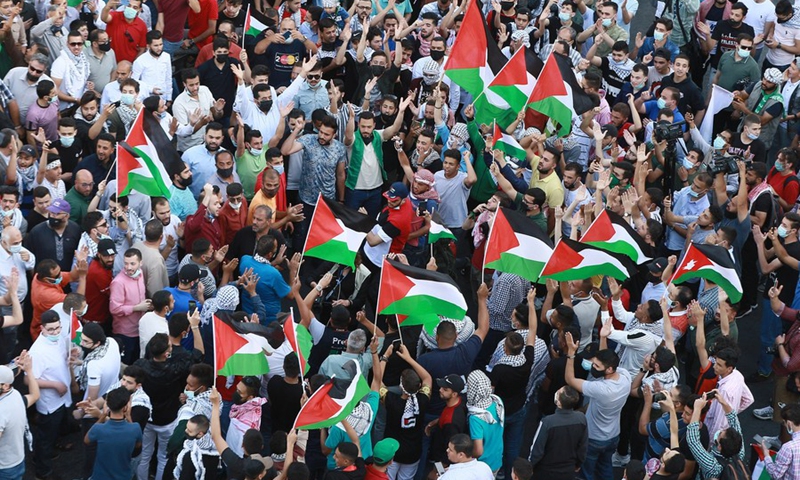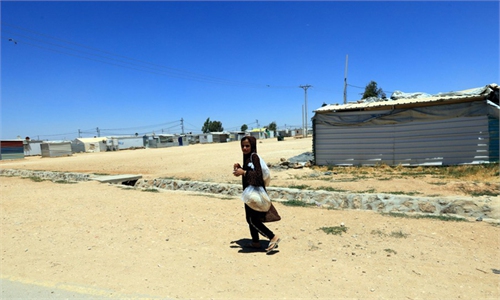
Jordanians hold an anti-Israeli protest to express solidarity with the Palestinian people, in downtown Amman, Jordan, on May 16, 2021.(Photo: Xinhua)
A Jordanian court was set to rule Monday in the trial of two ex-officials accused of plotting a palace coup that sparked a crisis in a kingdom seen as an oasis of stability.
Former royal court chief Bassem Awadallah and an ex-envoy to Saudi Arabia, Sharif Hassan bin Zaid, have been charged with conspiring with Prince Hamzah to have him replace his half-brother, King Abdullah II.
The prince himself was not on trial.
But the 13-page charge sheet said Hamzah, 41, "was determined to fulfill his personal ambition to rule, in violation of the Hashemite constitution and customs." Awadallah and Bin Zaid - who both have close ties to neighboring Saudi Arabia - have pleaded not guilty to "incitement against the ruling system" and "acts that could threaten society and create sedition." The verdict will be announced by the State Security Court - a military tribunal that also includes civilian judges - winding up a trial that opened on June 21.
Awadallah, who holds Saudi nationality, and his co-defendant face up to 20 years in prison if convicted on all charges. Regional powerhouse Saudi Arabia has fervently denied any involvement in the alleged plot.
The unprecedented palace crisis erupted in April. Eighteen suspects were arrested after authorities announced they had foiled a bid to destabilize the pro-Western kingdom, but 16 were later released. A former crown prince who was sidelined as heir to the throne by the king in 2004, Hamzah accused Jordan's rulers of corruption and ineptitude in a video message posted by the BBC on April 3. He said the same day that he had been put under house arrest.
Authorities later said he would not stand trial, as his case had been resolved within the royal family.



